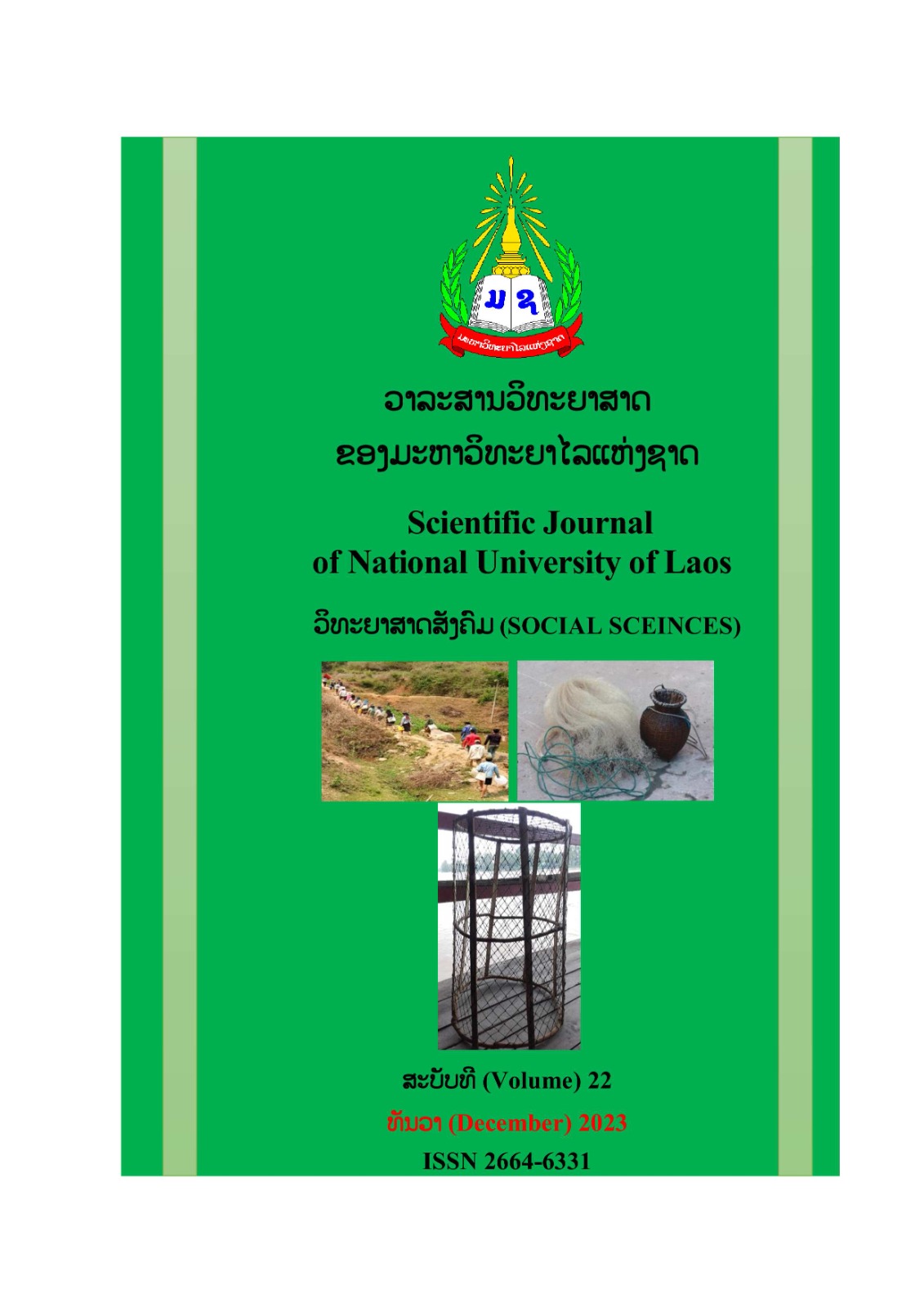Informal Knowledge-Based Learning Approaches Case Studies of Bio-Compost and Bamboo Production Promotions
Keywords:
service delivery learning, process-based learning, gender empowerment and local ownershipAbstract
This research “Informal Knowledge-Based Learning Approaches: case studies of bio-compost and bamboo production promotions” has two objectives. The first objective is to conduct knowledge-based learning approaches regarding bio-compost and bamboo production through the support from four nonprofit associations (NPAs). The second is to analyze the sustainability of the knowledge-based learning approaches based on four NPAs’ models. This research is funded by a Marie Curie Research and Innovation Staff Exchange scheme within the H2020 Programme (grant acronym: LABOUR, GA: 101007766) and collaborated by Participatory Development Knowledge Agency (PAKA). This is a qualitative research method and semi-structure interview with key informants is considered as a main research tool. In terms of data analysis, synthesizing concepts with main and sub themes are used. Describing and coding words are also applied to explain research findings. Results show that:
In terms of knowledge-based learning approaches, the four NPAs have applied a similar learning principle that encourages local peasants to explore and discover knowledge and skill practices within and between local community rather than to deliver new knowledge. From community development perspectives, this learning approach is called “local ownership principle”. This study considers that it is important to accept the principle of local ownership. Once local peasants have a strong sense of ownership and self-help, they will continue the work even after ending support from the donor projects. The four case NPAs studies have considered the importance of the local ownership principle by applying a process-based learning approach. Within this process-based approach, donors consider themselves as a facilitator, not an impetrator. Donors facilitate and encourage local participants to take control development process of the project implementation so they can learn, discover and solve issues during their development journeys. Moreover, the facilitation process also encourages more males to participate in gardening activities despite gardening work is likely considered as a female’ activity in the contexts of case studies. In addition, more women voices are being heard and considered by their partner because of more economic opportunities through gardening activities.
This study suggests some recommendations. Firstly, it is essential to acknowledge that local peasants are better learning by seeing and practicing rather than attending technical workshops with external expert-lead learning approaches. Thus, it is important that local authorities consistently encourage local peasants to exchange lessons. For example, peer to peer leaning group. Secondly, focusing on building model households that can influence other people is also important to prove the achievement of the project interventions with the time limitation. Thirdly, state support is necessary. State should play important roles in supporting relevant policies and works in conjunction with donor projects. While the state can provide policy directions, donor projects have potential technical and finical support so that together can make a better change for local development. Finally, this study would like to emphasize that process-based learning approach is more important than outcome-based development approach. This study acknowledge that outcome-based indicators are important to prove the achievement of the project implementation. However, if the project intervention merely focuses on outcome-based indicators, there is a potential that donors will apply the service delivery approach. Donors will not carefully listen to what people “see”. Therefore, what donors see is possibly different from what local peasants see. As a result, local people may be less active in participating in donor projects and stay back to the project after ending donor support.

